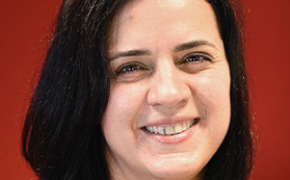Setting up a platform on which the various elderly-oriented care services can be indicated and match-made.
The FairCare solution consists of an easy-to-use web-based software which connects the demand for care and support for elderly people with the available supplies.
FairCare will be accessible via the internet browser and “application” for mobile devices.
The whole project is centred around innovation and end-user participation during all the stages of development. By involving all participating end-users in all participating countries (Italy, Netherlands, Switzerland, Spain, Hungary, Austria) during the development, the different needs and requirements could be captured optimally.
Objectives: The overall objective of “FairCare” is to improve the allocation and scalability of existing professional as well as informal care resources and care related services by creating a network-based solution for collaborative future care. That means the aim is to create an online-platform, where reaching a demand-driven match-making of primary end user’s needs with the relevant service provider/voluntary network is possible.
Expected impact: The overall goal of FairCare is to develop a sustainable solution, which a) coordinates professional care, voluntary work, informal care and further services; b) satisfies the legal and social requirements of different countries; c) maintains life quality of elderly persons and their relatives within their environment; d) assures qualitative high support by verification and certification.
Resources needed
-Total budget on consortium level: 3,422,947.36 EUR (national contributions: 2,119,588.00)
- On national level: The practice is supported by resources coming from the National Research and Innovation Funds; the funding rate was 100 %.
Evidence of success
- 1 well-operating FairCare platform developed
- Pilot actions in Switzerland, Austria, Italy and in Hungary - Smartphone App for Students
The app is designed for secondary school students to support the fulfilment of their compulsory 50 hours of community work. It makes it easier for social/health care service providers to benefit from the availability of voluntary students in their daily or occasional activities, and makes the administration in schools easier, as well.
Difficulties encountered
Difficulties in the involvement of service providers and elderly users in all partner countries.
School administrators felt it as a threat for their job
Seniors felt it as a shame, that foreign youngsters are more supportive than their own grandchildren
Potential for learning or transfer
- Involving methodology for elderly users and service providers: tested solutions.
Also, there is a lot of experience to be shared by contacting various actors (social- and healthcare actors, schools, students, etc.)
- Platform setup for people with special needs – elderly users
- The overloaded social care institution received help related to the not professional work
Tags: Ageing, Matchmaking, Services, Social, Volunteering








